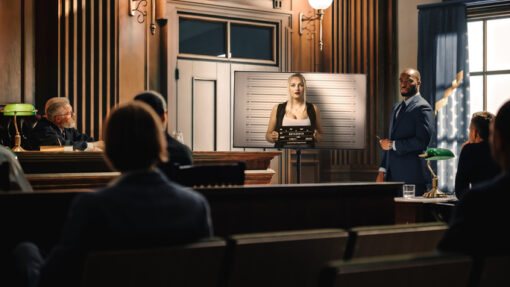If you’ve been convicted of a crime in California, your first inclination could be to appeal your sentence. Television dramas and movies frequently portray it as straightforward — that if a judge or court makes a mistake, all you have to do is file some papers and your sentence will be reversed. It isn’t that simple in real life. An appeal is difficult and time-consuming to file.
California law only enables you to appeal for particular circumstances. Continue reading to discover more about the grounds for a California appeal and then contact Chambers Law Firm at 714-760-4088 for help.
What is an appeal?
An appeal is a request by a criminal defendant to have a higher-level court (commonly referred to as an appellate court, or court of appeals) examine a lower-level court’s judgment (the trial court). An appeal isn’t the same as a fresh trial.
The appeal court does not consider fresh evidence, hear witness testimony, or hold a new trial. Rather, the appeal court examines the legal procedures to see if there were any legal mistakes that harmed either party’s rights. This involves going over the trial transcripts, any evidence provided in the case, and the lawyers’ arguments.
How to win an appeal
You must prove that a legal error occurred at the trial court level in order to win an appeal. Furthermore, this legal blunder must have harmed one or both of the parties. Prejudice can be established by demonstrating that there was a reasonable chance that the legal error influenced the outcome of the case.
For example, if the judge used the incorrect legal standard while deciding whether or not to admit evidence in your case, and the evidence that was improperly accepted contributed to your conviction, it was most certainly a prejudiced legal error. However, if the improperly admitted evidence was insignificant and did not influence the jury’s decision to convict, it was unlikely to be a prejudicial legal error.
Grounds on which you could successfully appeal
Under California law, there are a variety of grounds on which you might pursue an appeal. An expert criminal defense lawyer will help you determine if there were any prejudiced legal errors in your case. The following are examples of possible grounds for appeal:
- Evidence was admitted or excluded incorrectly
- Prosecutorial misconduct due to ineffective aid of counsel
- Arrest without authority
- Mistakes in sentencing
There are three options if the appeal court finds that there was a prejudicial legal mistake in your case. The first is that the judgment will be overturned. The second possibility is that the court of appeals will order a fresh trial. The third option is for the matter to be remanded, which means it will be returned to the trial court with directions on how to correct the legal error.
If you’ve been charged with a crime, having an experienced criminal defense lawyer on your side can help you receive the best possible result. To book a free first consultation, contact the Chambers Law Firm at 714-760-4088.





